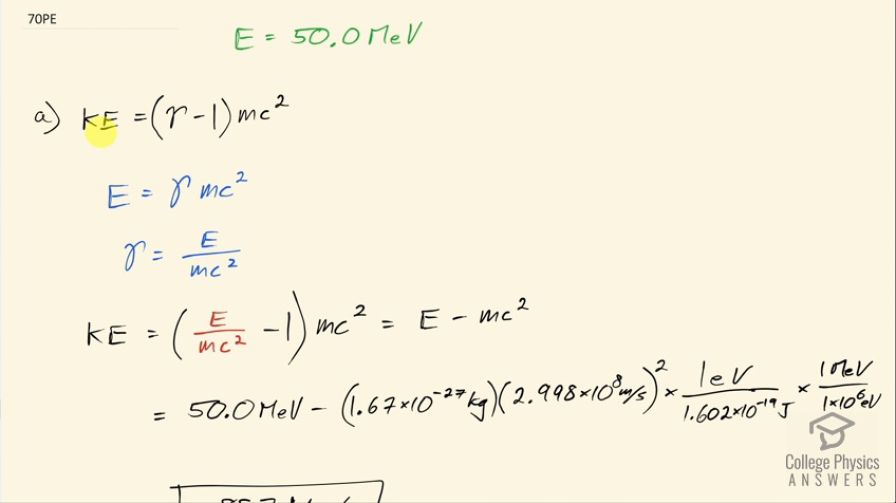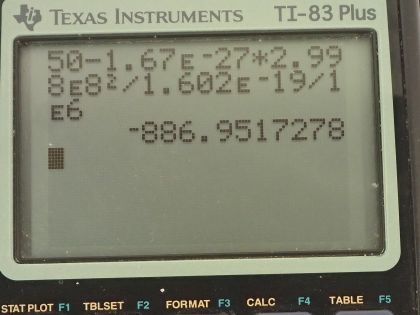Question
A proton has a mass of . A physicist measures the proton’s total energy to be 50.0 MeV. (a) What is the proton’s kinetic energy? (b) What is unreasonable about this result? (c) Which assumptions are unreasonable or inconsistent?
Final Answer
- A negative kinetic energy is nonsense.
- Total energy must be greater than or equal to
Solution video
OpenStax College Physics for AP® Courses, Chapter 28, Problem 70 (Problems & Exercises)

vote with a rating of
votes with an average rating of
.
Calculator Screenshots
Video Transcript
This is College Physics Answers with Shaun Dychko. A proton's total energy is supposedly 50.0 megaelectron volts and the question is how much kinetic energy does it have? Well kinetic energy is γ minus 1 times mc squared and total energy is γ times mc squared. So we can rearrange this for γ by dividing both sides by mc squared and so we get that the Lorentz factor, γ, is the total energy divided by the rest mass energy and we can substitute this in place of γ here and so we see the kinetic energy is the difference between the total energy and the rest mass energy. So that's 50.0 megaelectron volts minus 1.67 times 10 to the minus 27— rest mass of the proton— times speed of light squared and then we convert this, which will be in units of joules, into megaelectron volts because we are going to subtract it from this number which has units of megaelectron volts. So we times by 1 elecron volt for every 1.602 times 10 to the minus 19 joules and then times by 1 megaelectron volt for every 10 to the 6 electron volts and this joule here cancels with the joules that'd result here. This works out to negative 887 megaelectron volts. A negative kinetic energy is nonsense and so we can't assume that the total energy is going to be 50.0 megaelectron volts; the total energy always has to be greater than or equal to the rest mass energy.
